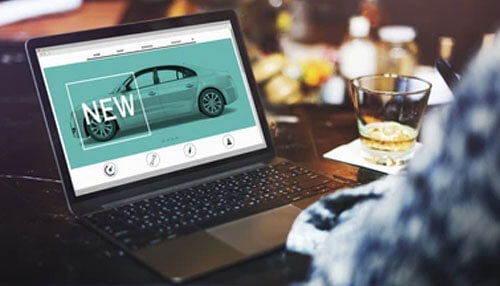Choosing to start a small business is not an easy decision. It has its upsides, like the ability to set your hours and work independently. But it also has its downsides, like the need for financing and building up enough capital to even get started. If you’re currently in this position, consider starting a car dealership. Car dealerships are one of the most lucrative types of businesses around today. They require little startup capital, can be scaled quickly with profits that often exceed $100 million per year, and have many options for expansion. Discussed below are five steps of starting a small biz car dealership.
Step One: Research
Car dealerships are a dime a dozen. They can be highly profitable from scratch and even lead to franchise opportunities. These are all reasons why you should take the time to research before starting your car dealership.
- Research the market. The market for car dealerships is huge. In fact, according to the National Automobile Dealers Association, new and used-car sales totaled around $716 billion. Furthermore, a large part of this market demand is small businesses with only a few employees. This means there’s a lot of room for you to grow your business and sell many vehicles. Even though there are more than 16,000 car dealerships in the U.S., only a few make more than $100 million per year.
- Research your competition. If you’ve been considering opening a business that sells new or used cars in Montclair, then you need to know what’s already on the market. Research your direct competition and those businesses that are similar to yours. Compare their strategies and analyze how they’ve succeeded in the local market.
- Look at how you can differentiate yourself from your competition. There should be a specific focus on what makes your dealership different from the other car dealerships around town. Focus on the customer experience, the product you provide, and your business practices.
- In setting your dealership apart from the competition, the integration of a robust Dealer Management System (DMS) can play a pivotal role. Moreover, ther commitment to excellence also extends to our emphasis on dealership supplies.
The more research you engage in, the better prepared you will be when it comes to making critical decisions that impact your business. Things to consider researching include car shipping costs for your business, licensing and permits for your business operations, mechanic and customization services either through hired help or through a third party auto company. Research what kind of struggles and successes your competitors have had in the past. The A-1 Auto Transport shipping calculator with most accurate price estimates for transporting vehicles.
Step Two: Funding
Starting a small business requires money. Unfortunately, this is one of the drawbacks of being an entrepreneur. There are several ways to get your hands on some initial funds, including getting a loan from the bank or a peer, finding a partner with some capital to invest, or going the venture capital route.
However, if you have very little cash on hand and want to keep your business expenses as low as possible, then consider borrowing from a friend or family member. This will provide you with enough initial working capital to focus on other things like marketing and advertising. You can also consider selling items like laptop skins, phone cases and clothing apparel with your company logo to raise some funds.
Step Three: The Business Entity Selection
Before you begin, you’ll need to choose which business entity type best suits your needs. There are several types of entities that you can use for running a small business, including the limited liability company (LLC), corporation, and sole-proprietorship.
However, most businesses use a corporation or an LLC for legal reasons. Corporations offer the owners, known as shareholders, limited liability from any debt or obligation incurred by the business. And although LLCs do provide some protection for business owners from personal lawsuits, they also require at least one member to be personally responsible for any debt or obligation brought against the business.
Step Four: Location, Location, Location
A location is one of the most important factors when starting a car dealership. However, it’s not as simple as going for a prime location in an affluent area. If you want to be successful at selling cars, it’s vital to select the right location for your dealership.
When selecting a location, a car dealer needs to consider what kind of customers they want to attract. If you’re starting and don’t have much money for advertising, having a crowded area will only make it harder to get the word out about your business. This is why it’s important to find a location that will draw in the type of clients you want.
For example, major cities like New York and Los Angeles will provide you with a larger client base. However, these areas will also be more expensive to rent or purchase a property.
On the other hand, if you want to build your customer base through word-of-mouth advertising and social media marketing, then consider searching for a location in a less populated area. It might take longer for people to find you, but once you’re there, they’ll likely become loyal customers because of the level of personal attention your dealership gives them.
Step Five: Craft a Business Plan and Get the Necessary Permits and Licenses
A business plan is a crucial document for an entrepreneur to have. It provides you with a map of where your business is headed and how it will get there. A good business plan needs to be thorough and leave room for new opportunities that you might not have considered before.
You will also need to get the necessary permits and licenses, which will vary depending on the type of business and location you choose. For example, suppose your dealership will be located in an area with a large concentration of dealerships. In that case, you might need to get approval from the local chamber of commerce before opening your doors, as well as zoning clearances and permits before you’re allowed to start selling cars.
Some of the permits you need include the following:
- Zoning clearance certificate
- Business registration
- Fire safety clearance certificate
- Environmental protection clearance certificate
Although obtaining permits and licenses can be a lengthy process, it’s necessary to do business legally. If you don’t get the appropriate permits and licenses, you’ll be fined heavily for breaking the law, which can ultimately hurt your business.
Starting a car dealership can be an exciting new venture. However, it’s important to get all of your ducks in a row before starting your business. Although this is not an exhaustive list on starting your car dealership, following these five steps will help you get started on the right track. Once you have all the legal documents in place, that’s when the real journey begins.




